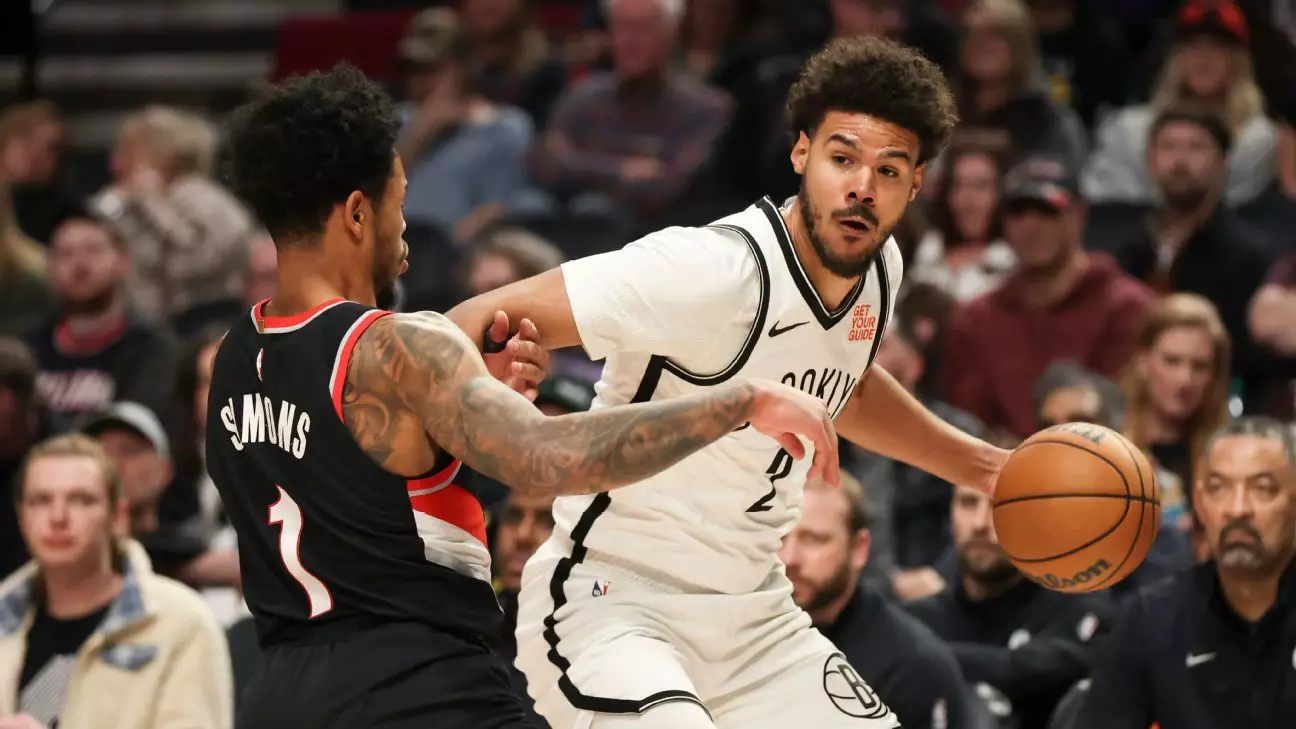The Denver Nuggets have made a striking—and for many, puzzling—decision in trading Michael Porter Jr. and an unprotected 2032 first-round pick to the Brooklyn Nets for forward Cameron Johnson. At face value, this move reflects Denver’s willingness to reshape their roster aggressively, but it also raises several concerns about long-term strategy and financial prudence. Porter, who has been a significant contributor to the Nuggets’ recent success, particularly during their championship run, is being swapped for a player who, while promising, has yet to prove himself as a bona fide cornerstone. The inclusion of an unprotected future first-round pick could haunt Denver, especially if the team encounters unforeseen struggles in upcoming years.
Financial Shuffling or Strategic Mastery?
The trade also lays bare Denver’s intricate financial maneuvering. Porter’s contract, with over $79 million remaining for the next two seasons, is substantial and burdensome. The Nuggets aim to alleviate some cap pressure by acquiring Johnson, whose salary, although still hefty, is relatively more manageable in the short term. But trading a key contributor primarily to manage payroll is a double-edged sword. It highlights the sometimes uncomfortable balance NBA teams must strike between building a winning roster and maintaining financial flexibility. This transaction feels less about pure basketball reasons and more like a salary cap chess game, which runs the risk of undermining team cohesion if not handled wisely.
The New Front Office’s Catch-22
This trade, as the first major move under Denver’s new executive leadership, demonstrates both ambition and volatility within the organization. Ben Tenzer and Jon Wallace are signaling a shift in philosophy, perhaps acknowledging the need to move beyond the existing core, yet it remains uncertain whether this shake-up will spark the desired resurgence or breed instability. Given the firing of head coach Michael Malone and GM Calvin Booth late in the previous season, the franchise is clearly in transition—but the answer to whether these maneuvers are brilliance in disguise or desperation-driven is still unclear.
The Risks of Overhauling a Championship Core
While Cameron Johnson’s breakout season offers hope, replacing Porter—who averaged a similar offensive output and has been integral in Denver’s chemistry—carries significant risk. Johnson’s strengths as a three-and-D player fit a modern NBA mold, but Porter’s combination of size, versatility, and scoring represents a rare positional value. Moreover, the loyalty and familiarity Porter has with Nikola Jokic and Jamal Murray should not be underestimated. Denver’s bet on Johnson and the future thus walks a precarious tightrope: will this calculated shock revitalize a championship team or unravel its hard-earned synergy?
Veteran Additions and the Quest for Balance
Denver’s quick re-signing of Bruce Brown for a veteran minimum contract signals a desire to maintain locker room stability despite the upheaval. Brown’s role in the 2023 title run was pivotal, both on and off the court. Retaining such a player suggests the Nuggets recognize the intangible values that are often lost in frenetic roster changes. Integrating Brown, Jokic, Murray, and now Johnson will test the coaching acumen of David Adelman, whose elevation to head coach underscores Denver’s new era—one that will require delicate balancing of talent and personalities amid evolving ambitions.
The Nuggets’ recent trade is a bold yet divisive move that reflects the complex pressures of sustaining excellence in the modern NBA. It embodies a conflicted blend of financial pragmatism and competitive urgency, wrapped in a gamble whose consequences remain to be seen.

Leave a Reply